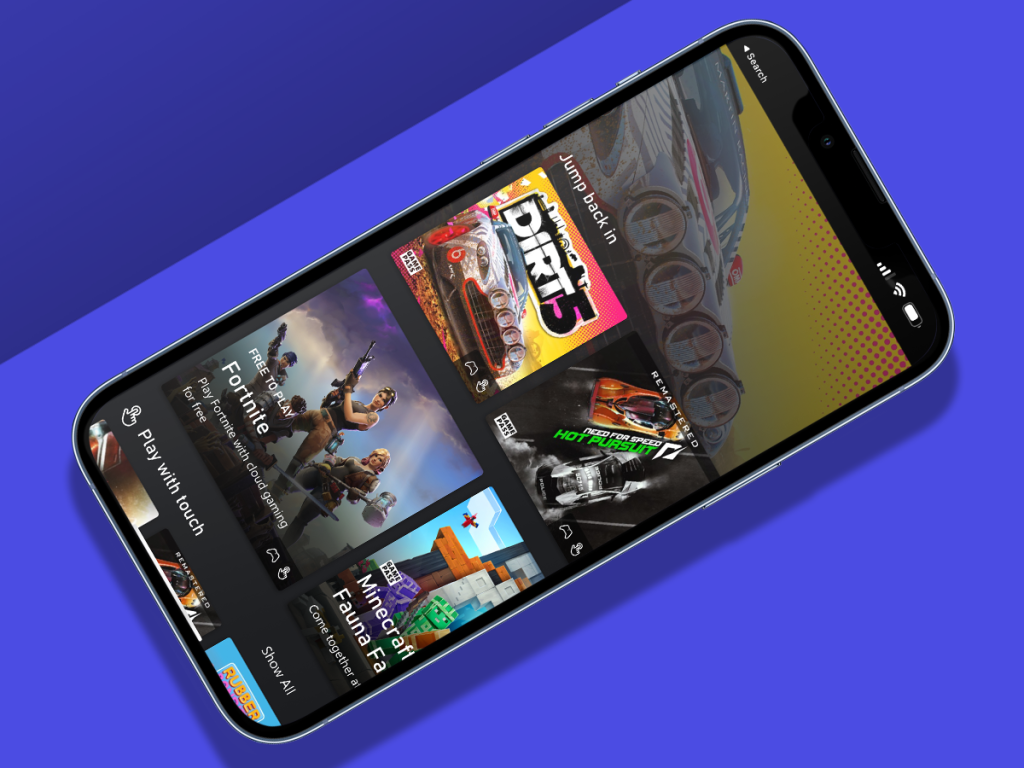According to industry reports, Microsoft plans to build an Xbox mobile games store. It would operate across a “range of devices” and leverage games from the intended Activision Blizzard King merger, including mobile giants Call of Duty: Mobile and Candy Crush Saga.
Would it succeed? It’s hard to tell. Microsoft recognises there are challenges in moving consumer behaviour on from existing habits – buying from the App Store or Google Play. There’s good reason to worry. Android might have more freedom than iOS regarding app and game installs, but ask Amazon how well its ‘Appstore’ has fared – and whether anyone who doesn’t own a Kindle cares. The relative paucity of quality isn’t great either. Elsewhere, Netflix is having its own crack at mobile gaming (and, according to Eurogamer, exploring its own cloud offering). But despite an objectively solid collection of titles appears to be making little impact.
Microsoft might fare better due to its existing clout and reputation. It aims to woo third party developers with the promise of freedom. They’ll be able to go all ‘app store-ception’ with their own app stores within Microsoft’s. They’ll get the option to use first-party payment systems, thereby cutting out the platform owner. Ironic, given Microsoft not allowing that on Xbox consoles.
On the face of it, this looks like the flip of Apple’s approach. It took Apple a long time to understand gaming’s range, and it rejected titles in a manner that raised eyebrows. That’s less of a problem today, but developers still smart at Apple’s 30% cut. And gamers are irked by Apple’s nonsensical stance on streaming game services. The company effectively demands each title be a separate app, despite that restriction not being applied to other media.

We can argue about the benefits and drawbacks of each approach, but it’s most important to look past the spin. Because despite the differences between rivals , the commonality that underpins app stores is a desire for control.
Microsoft talks up choice and competition, but it wants control of the narrative. It’s currently under scrutiny from the UK’s Competition and Markets Authority (CMA) over the Activision deal, and needs to successfully argue it’s different. In reality, it’s creating another walled garden – albeit a shorter wall with some holes in. And if you don’t think Microsoft wants to wrest control of a chunk of the market, primarily to make good on a long-term goal of rolling around in piles of cash, I’ve a bridge(-building game) to sell you.
Epic, for all of its railing against The Man, exists in a similar space. The Verge noted it blocked Fortnite from Xbox Cloud Gaming. Why? Because of concerns that Microsoft’s service competed with Epic’s PC offerings.
As for Apple, it’s no secret that the company has always loved tight control over its ecosystem and what runs on its devices. Streaming gaming is blocked under the guise of security and safety – but from the outside, it looks a lot like the company’s doing an Epic, blocking competition to shore up its own services.
So much for good guys, then, because there aren’t any. People get attached to the Apples and Epics of this world – and, yes, even the Microsofts (hello, Zune fans!) – but these are all corporations eyeing profits. There will be hints at the betterment of gaming – or, in loftier moments – humanity as a whole. Sometimes, companies might even reach that goal. But in this space, we need to remember everyone’s all about looking for ways to attract a large user-base with cash to spend – and keep it from heading elsewhere.



